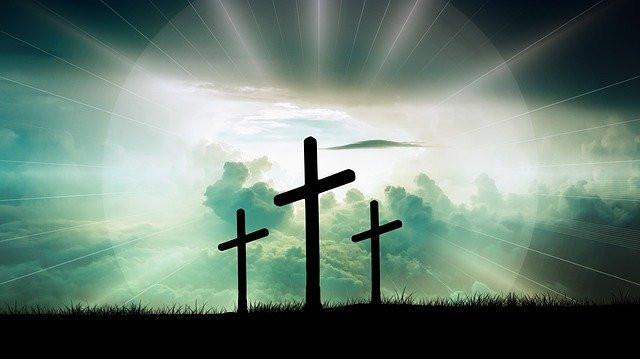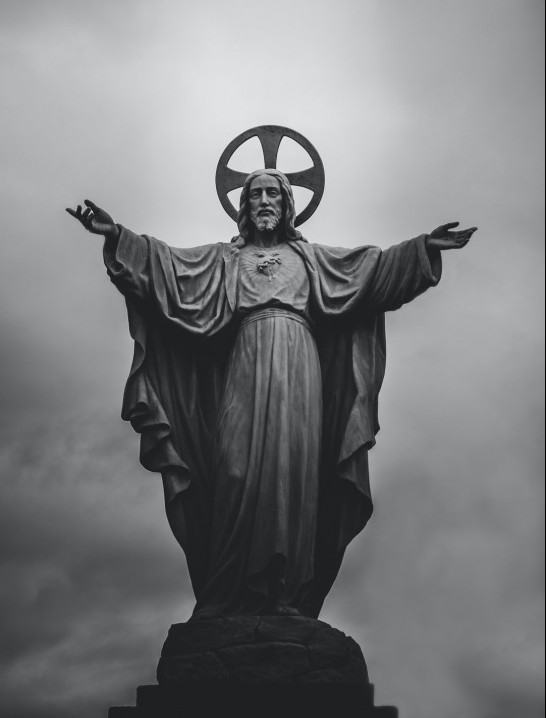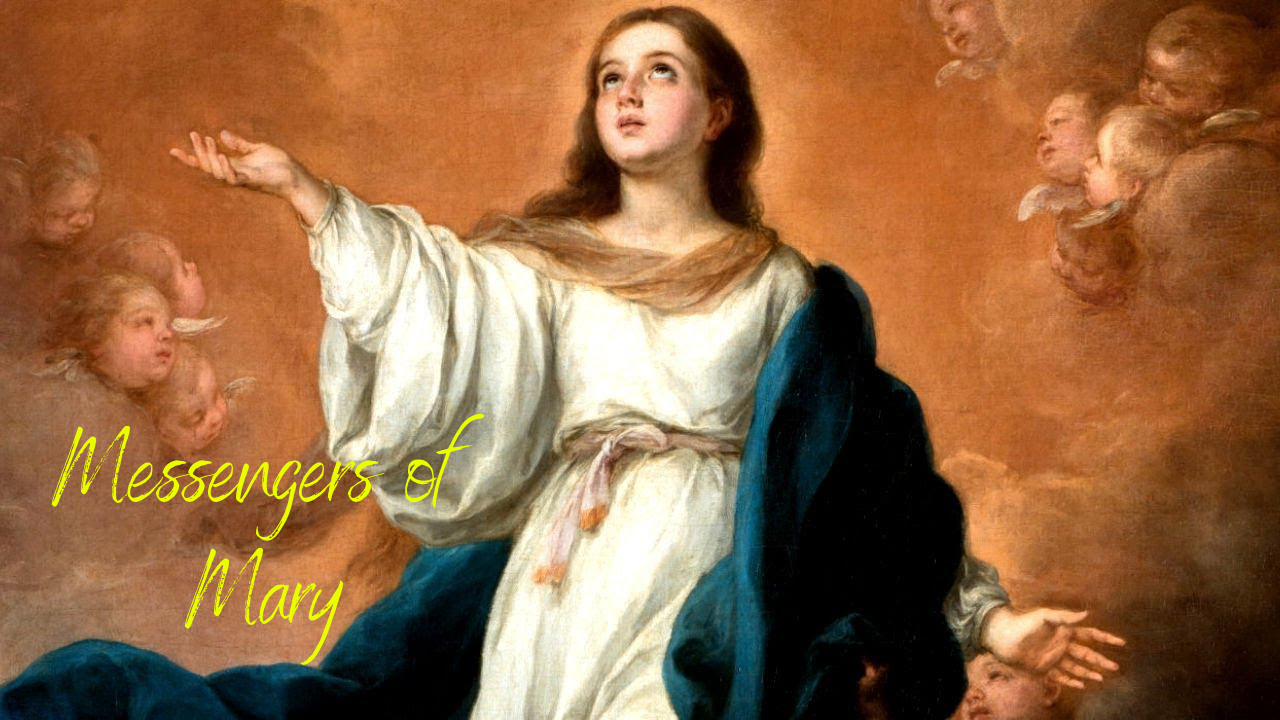Have you asked yourself, ‘what is the soul of man? How does the soul of man operate?’ In this small peice of work from the compilation of essays and manuscripts, named, Dominic’s Literature, we get some profound insights into the nature, faculties and operations of the soul.
Table of Contents
I
The Nature of the Soul

Your soul by nature is spiritual, but it is made to be united with your body which by nature is not spiritual. The human person is a being in which soul and body are united.
Now since we are fallen creatures who stand in need of grace to do anything good, and since our soul is mostly informed only through the body, we are often want to seek our happiness in the things we see around us. For nature has an eye only on what falls under the bodily senses. But it is only in the soul that real human happiness can be found. This means closing the doors of the outward senses in order to become more aware of that One Supreme Spirit Who is present everywhere.
In the body He cannot be found, nor in the things of the body, nor in those things that are temporal and mutable. For He is purely spiritual. He is timeless and immutable.
What is happiness? What is holiness? These things are nothing other than the knowledge and love of God. But if our souls in which we are capable of knowing Him are fixed on temporal things and intent on serving the flesh alone, God remains a secret and an unsought for treasure to us.
‘Turn to me and I will turn to you’ (Zec. 1. 3) says the Lord. For in order to approach the Creator, a creature must seek to free itself from being wholly present wheresoever the body is present. For so says Our Lord, ‘where the body is, there shall the eagles be gathered together.’ (Luke 17. 37). For such a man is considered to be as good as dead, and as food for the creatures of the air, who is wholly carnal before the face of the Lord.
But he is regarded as wise and blessed who turns away from the things of the flesh and of the world and who enters into himself where the Word of God abides.
Now to understand the nature of the soul, we need to get some grasp of the spiritual nature of God. For as man is made in God’s image, his body being more noble than all other bodies, points to the spirit that is in him. And his spirit points to God Whom it reflects.
God indeed became Man and took to Himself a body, but not only that we might behold human nature in its perfection, but that in and through this perfect humanity, we might find the invisible and incorporeal God and become like to Him in our souls. For it is said that God became Man that man might become God. For one who through the grace of Christ is raised out of the mire of sin and made to bear a likeness to the divine nature, such a one has become God, as far as this is possible for a mere creature.
God by nature is not said to be a human being but a pure spirit. That is why to be spiritual means to be like God and to be holy. For how can that which lacks spirituality be said to harmonise with the divinity and to be Godlike?
God speaks to us and draws us through the Sacred Humanity of His Son in order that by Him Who is His Word and Who is the way, the truth and the life, we might become spiritual children of the divinity.
To achieve true spirituality, we must not only be focused on the interior, but must also be justified by grace, and indeed he is not truly internal who is not according to the Spirit of God in justice. For the angels were made spiritual and like to God by nature, but not all persevered in grace and justice so that such as became wicked were no longer like to God by grace but only by their spiritual nature.
Now as we have seen, the human soul attains its true end and happiness in the knowledge of God. But this knowledge presupposes a certain state of justification which must be brought about by the habitual operation of body and soul, working together to cooperate with supernatural grace. For since God is above us in nature and yet is the end of the soul, it is clear that we reach the fulfilment of our creation only when we come to rest no longer in ourselves, but above and beyond ourselves by means of Sanctifying and Actual Grace. That is, we must come to rest in God from Whom we have originally proceeded and to Whom we are bound to return.
To combat sin in oneself is to aspire to God. But to overcome and to be confirmed in grace is to find purity of heart and true rest in God. He is confirmed in grace whose charity is such that the Holy Ghost reigns in him and therefore the possibility of sinning has become incompatible with being in such a state. No creature then, can reach justification without many and great victories over self, and without justification, how shall there be any glorification?
Moral good cannot reside in an irrational creature and hence none of these can have a true knowledge of God. Neither is a human body of itself capable of moral actions and so we must conclude that only by reason of his soul, aided by divine grace, is a man able both to know and to be like God. For because a soul has the faculties of memory, intellect and will, it is therefore capable of acting in a morally good way which is something Godlike and can merit an eternal reward.
But if it is possible for creatures to be good, not only by their existence, their nature and their particular attributes, but also for them to be good in a moral way, there must also be the possibility of evil which is the absence of moral good in a place where it should exist. A body can be understood according to the principles of nature. But a soul must be considered in the light of the forces of good and evil.
Now we judge a man to be good if we observe moral good in him and this we call ‘virtue.’ However it is possible to be virtuous through the nature of the soul alone, which is able to put on an edifying exterior through a natural knowledge of the habits of sanctity and through the power of the will to act according to a concept formed by the intellect and assisted by the imagination. Some may therefore display great humility, great patience and goodness towards others and this does indeed reflect the perfection of the divinity. But it is not in this way that virtue makes a man truly like to God so that he knows and is a friend of the Most High.
For man’s own virtue is not sufficient to make him like unto God in this way, since truly, even the wicked show goodness to their own kind and at times even to such as are just and holy.
Moral good according to God and not according to vain man is alone worthy of salvation and by this it is that the soul of man reaches its perfection. Mortal man may be said to be vain insofar as he often looks upon that to be good which in reality is evil. For with his own lights a man cannot discern the secrets of grace, nor can he always distinguish what is of God and what is of the Devil.
To be morally good according to God is to be and to act virtuously with grace and divine charity. It is the magnitude of the grace with which we act that determines our measure of likeness to God and the merit of our actions.
The soul therefore is good in itself and like to God by its faculties. But as nature is perfected by grace, so the soul can only attain its ultimate end through the grace of supernatural charity. Without grace a soul is said to be dead because it cannot abide in the source of life without it, and if it departs mortal life in grave sin it will be damned.
II
Inherent Corruption and Redeeming Grace

By the loss of original justice, man has greatly crippled his own nature so that the soul tends to follow its own will and the body also has a mind of its own contrary to the law of God.
Only by a power greater than his own can a man rise once again from his fall and return to the divinely moral path of justice. It is by redeeming grace that man can repair his own spiritual ruin. But the work of cooperating with this heavenly power is no trivial matter and the soul can only be reformed by gradual progress in grace.
For the evil of sin that is rooted in us does not remain static, but is in continual motion. When we feel within us these movements which proceed from the Seven Deadly Sins, and when we are led by them to transgress the Commandments, this is called temptation. The Devil has some liberty to aggravate these movements. But he is not always the primary cause of our temptations.
Sin is like a disease, an anti-growth force. That which is in motion is moving towards an end. Sin may be said to reach its end in a soul when that soul has left the body in a state of mortal sin. For mortal sin is death to the soul and leads to hell, just as a living body is brought to its end by sickness and disease. And the more a soul gives in to the downward pull of sin, the more powerful is the force of evil over it and the harder it is for such a one to utilise the power of grace. But while the soul is still detained in the body, there is always a chance to win back grace and eternal life. That is why sin can only gain its ultimate triumph when an unrepentant soul that is not in a state of grace is torn asunder from the body by the hand of corporal death.
The only real way to get free from the downward motion of sin is to constantly make efforts to follow the upward motions of grace. There is no in between because not to be moved to acts by one is be moved to them by the other. It is essential then, to be motivated by grace or at least to act as well as we know how while in this state. For if you are merely in your own hands, it is certain that your actions will lead you in the end to eternal death. For to act with grace is to merit eternal life, but to act outside it is to fall under the power of the law of sin that is in you.
To be and to act in a state of grace, a soul must ordinarily be delivered from the inherent stain of Original Sin through the Sacrament of Baptism and have faith in the Name of Jesus, True God and True Man, and Redeemer of the human race. Moreover, to preserve grace, a soul must not be guilty of any actual sin which the Catholic Church would recognise as grave matter.
While there are guidelines for determining what constitutes grave matter, it is often not possible for a soul to judge with absolute certainty whether or not it is in a state of grace. Hence we read in the Scriptures that man knows not whether he be worthy of love or hatred and we must as St. Paul admonishes, work out our salvation with fear and trembling.
The saving and sanctifying power of Redeeming Grace originates in the Sacred Humanity of Christ, the Man Who is united in His Personhood to the Word of God, the Second Person of the Blessed Trinity.
For the Son of God truly descended from heaven, was Incarnate of the Holy Ghost in the Womb of the Virgin Mary, and was made Man for our salvation. This is our hope in the midst of the evils both within and without that threaten to destroy us.
And who is this Son of God? Why did He leave heaven for our salvation?
As we have said, the Son of God is one of the Three Persons Whom the Catholic Church confesses to reside in the Divine Nature Itself. He is the Second Person because there is an order of First, Second and Third in the Blessed Trinity, namely: The Father, The Son and The Holy Ghost.
The Second Person is called ‘Word’ and ‘Son’ because He is that perfect production of the Divine Mind which together with it, has no beginning and no end, but is coequal and coeternal in one and the same divine nature.
It was decreed that this Person should be sent to redeem fallen man and this decree was not made through necessity but proceeded from the Divine Love. For God was moved by His own charity to repair our ruin, a thing that would be possible for Him to achieve according to human nature, though not according to the angelic nature. For it is proper to man that he may reconsider his course of action and repent of his sin, but not so with the angel who never goes back on any decision once taken, for it is irrevocable according to his nature and hence why there is no redemption for the angel after he has once fallen from grace. Thus while the angel is of a higher nature than man, yet man is still redeemable after he has turned against God through sin.
Now the Divine Justice would have to act in one way or another to repair the injury that was done to it through the disobedience of Adam. Either man would have to be punished by being left to perish in his sin, or one who was capable of paying the contracted debt and of acting as Mediator would have to intervene. But since man could not of himself meet the requirements of Divine Justice in order to reform his soul, God would have to find some extraordinary means to do this for him if man was to recover himself. But God had no obligation to pay our debts for us. However, His love for us prompted Him to come up with that marvelous invention of the Incarnation in which a superabundant satisfaction could be made and the doors of Heaven could be reopened to us.
Man’s sin being an infinite offense because of the nature of Him Whom it offended, could not be forgiven and done away with without sufficient cost. Moreover, justice ordinarily requires that not only should amends be made for the offense, but something over and above should also be offered to the offended person in order that a sound reconciliation can be made. Now the Divinity Itself cannot, strictly speaking, suffer anything at all. And hence one vital reason why it was decreed that God should assume our humanity. For He could then take the curse of sin upon Himself and not only offer what was strictly required for the atonement of sin, but more besides, since He would also suffer the unmerited penalty of death. It was unmerited because although being a descendant of Adam, He did not and could not assume or contract any personal guilt which would ordinarily result in the penalty of suffering and death. The Incarnation itself was more than enough for the strict payment due to the Divine Justice. The mere fact that a God-Man existed and that He prayed and sighed for the salvation of men was itself worthy and capable of canceling the debt of sin. Hence the Passion and Death of Christ was not merely a payment for sin, but was an excess of His love for us. It was also a way of offering something that was well over and above what was owed since there was no obligation on the part of Christ to suffer torment and death, and it is said of Him that He was offered in this way because it was His own will, which is ever one with the Eternal Father’s will. Since He chose to act in this way, man now has every possible means of grace and salvation.
Redeeming Grace therefore, is man’s supernatural aid to salvation and the means whereby he is able to enter into the divinized life of the Man, Jesus Christ. It is a supernatural aid because it raises the natural life of man to a supernatural level in which communion with God, Who is infinitely superior to man, is made possible. This supernatural aid is what enables a man to arm himself against sin that lives in his members. It gives him the strength to avoid a fall and to recover himself if he does fall. It enables him to progress in justice, in virtue and merit and to assist in the eternal salvation and sanctification of others. It enables him to observe his duties towards God, his neighbour and himself. ‘Without me’ says Our Lord, that it, without grace which flows from Me, ‘you can do nothing,’ (John 15. 5) nothing worthy of salvation. For man can do none of those things that are for the good of his soul by his own power alone.
III
Entering into Christ

We have seen how it is only because God became Man in Christ that we have all grace needful for our spiritual reformation and eternal salvation.
Now it follows from this that grace is not only a mere helping hand from God, but a true entering of our lives into Christ; hence The Mystical Body. For there can be no real supernatural life outside the Life of Christ. For as He Himself has plainly said, He is ‘The Life.’ All who participate in the supernatural life of grace are truly members of a body in a spiritual sense. They from together a unity which is nothing short of an overflowing of Christ’s ‘Life’ into human souls, or as we have said above, an entering of humanity into Christ.
To increase in grace, virtue and merit then, is in a very real way, to ‘grow in Christ.’ A soul in the state of grace shares in the things that belong to Christ because it has entered by participation into the divine life. It is a part of that Human Life which was graced in all things with the Divine. Christ was not alone in assuming human nature, in that by the very act of doing so, He took human nature or all the elect of mankind up with Him to God, to a participation in His Glorified Human Life and the most exalted Life of the Blessed Trinity Itself. He came down to us only in order to raise us up to the Divine Life which we share in and through Him.
We share in His relationship to God the Father by being sons with Him, not according to nature, but through the adoptive power of grace.
We share in His Mortal Life while we are on earth: His prayer, His work, His suffering and the merit of all His most perfect virtues. We share in His agony and His death, and if we have persevered in grace, we will likewise share in His glory.
To be humble, to obey and to exercise patience and charity towards our neighbour is for us to enter into and become a part of the humility, the obedience and the love of Christ. For so it is that all in us that God loves, He loves in and through His Son, Our Lord Jesus Christ. For while there are many good creatures, the fullness of all good is not in any one of them in particular, nor in all of them combined, but in Christ alone. And only through Christ and in Him can anything appear good and worthy before God.
But it is not enough for a soul merely to enter into Christ by being in a state of grace. It must also safeguard this state in order not to fall away from it and must moreover, do all in its power to grow in the life of grace at the cost of the life of nature. For nature being irrational follows the law of sin in opposition to the law of grace, which requires that a man act according to reason and not according to the blind motions of passion.
We say that nature is opposed to grace because after the fall, the very nature of man is corrupt and inclines towards sin. Only by grace, which is not a part of man’s nature, can he love and act in the right way. Since nature then is corrupt, it follows that the more it is restrained and beaten down by the will, acting according to reason and assisted by grace, the more a man lives and grows in Christ, and restores in himself the image of God that has been distorted by sin.
His duty is to give battle to the evil motions of nature in order that the empire of grace may triumph more and more in himself. And before all other concerns, he must in the first place have care for his own soul, since before all others, he will have one day to render an account to God of himself.
The Christian who attends most to this spiritual work of reforming his soul to the image and likeness of God, is destined to the greatest happiness on earth and the greatest glory in eternal life. The more like to Christ a man becomes by virtue, the more perfect and sublime is God’s communication to that soul, wherein it is united to Him in the bonds of Charity.
But with little or no Christian virtue, a soul cannot draw near enough to God, for it is in continual communication with creatures and those lower things that flatter the outward senses, leaving the inner man cold, hard and blind to the action of grace.
The Spirit of Christ is reserved to those who seriously imitate His Most Holy Life. It is such souls that truly abide in and live by Him, for being obedient to the motions of grace, they live no more to the law of sin.
